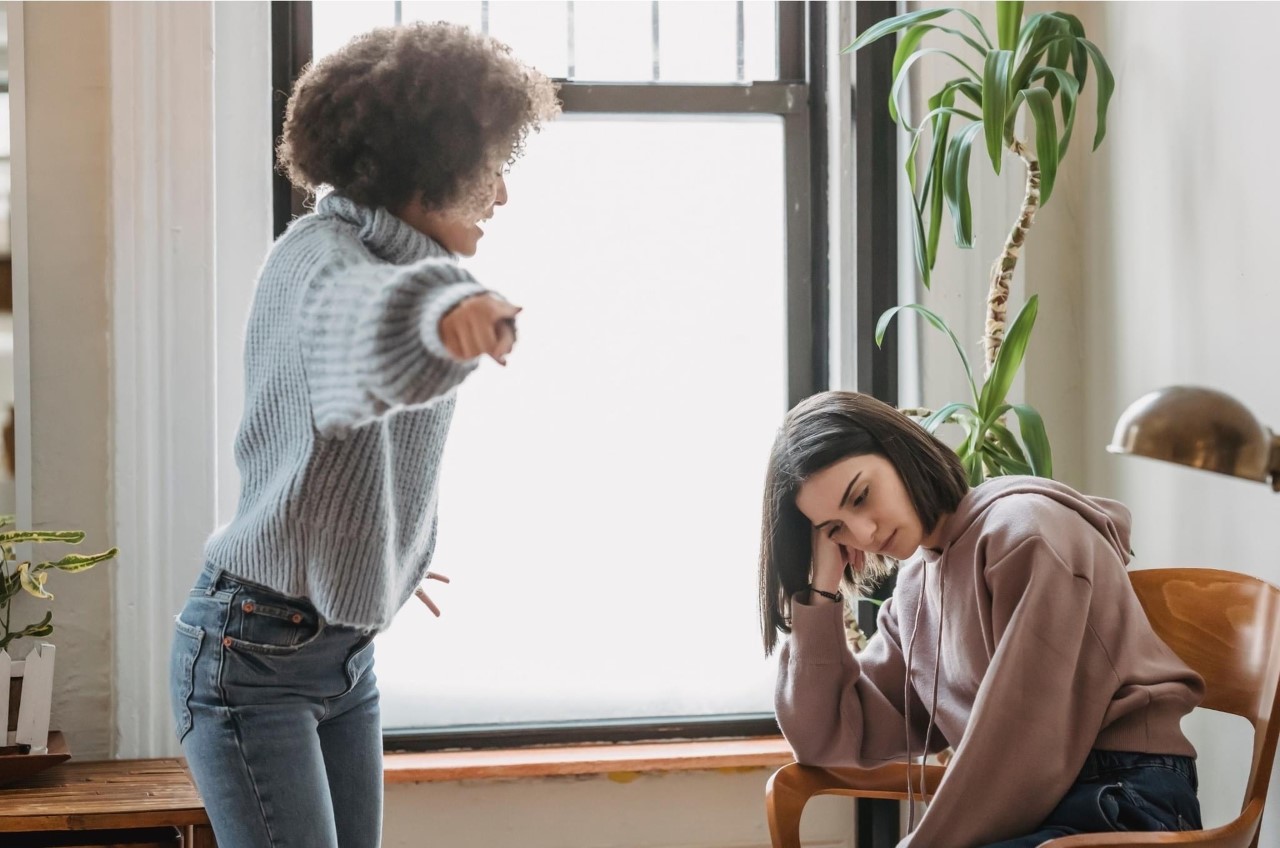By Allison Garner of OPLM
This is a quote from my dad who probably heard it from someone else. He shared it with me when I was a School Board member and I was fighting for change within the system. His point was to recognize what is and isn’t possible or likely and then focus on what I could win.
This is also great advice in parenting. I really want my kids to follow my rules and respect me. I hate it when they eat in their rooms or they vape or they start a load of laundry and then leave it sitting in the machine for days. It’d be easy to create a rule. No eating in your room. No vaping. All laundry has to be done in a day.
Rules are easy to make. Some are impossible to enforce. How exactly can I enforce not eating in their room? How do I make sure my kid never vapes? What do I do when the washer and dryer are full of their clothes and I need to get my own laundry done?
Do I ground them?
Do I take away their phone?
Do I withhold allowance?
First, I know that the consequence should align with the mistake if it’s to be effective. How does grounding my kid feel like a natural consequence of vaping?
Second, rules and consequences will be unlikely to change their behavior in these examples. Vaping can be addicting, so taking away their phone or car will unlikely lead to them making the decision to quit. They will have to make that commitment when they are ready.
Third, my kids don’t get to process how their decisions impact others and themselves. If they live in a world of rules and punishments, then they aren’t connecting dots. They aren’t buying into making better choices.
Finally, when I try to enforce something I cannot enforce with my kids, I risk denting my relationship with them. I want to have an influence in their lives. To do this, they have to feel connected to me, trust me, and respect me. If I put myself in a position of power, the relationship then becomes a power struggle. If I want my kids to stop bad behaviors, then it is more likely for them to change when they understand the purpose and the impact of their behaviors.
If we can get some elevation from these scenarios, then we can see a common thread amongst them, yes? They are all examples of things I don’t want them to do. It’s mostly about ME wanting to control them and force decisions upon them. Control is MY way of dealing with their challenges.
Because I can see the forest for the trees.
Because I am looking out for their best interests.
Because I am older and experienced and know how things go.
(Deep breath) If only humans worked that way. If only we could learn from others’ mistakes… Unfortunately, we will learn the most from our own mistakes. Which means my kids have to make them. Recover from them. Learn from them. Just like the rest of us.
My attempts to control their environment and their decisions is all about ME. I am inserting myself into their life so I can protect, rescue, fix and advise them. They can avoid the pain I (and others) have gone through. If only they’d listen.
When I feel the urge to exert my will upon my kids, I have found myself well served by looking in the mirror. When I can ask myself what I am so afraid of, the answer is usually a laundry list of items that feel crushingly overwhelming.
If they vape, they’ll get popcorn lung or develop heart problems or develop cancer.
If they eat in their room, then we’ll have mice and they will live in squalor and they’ll never find someone to marry who will tolerate their filth.
If they cannot finish their laundry, then they may be late for work and get fired and end up living in a van down by the river.
So it makes sense that, as their mother, I will prevent my kids from cancer, becoming a hoarder, or living in their car. What kind of mother would let THAT happen?
What kind of mother indeed.
Deciphering between teaching and controlling can be really tough. Especially when I love someone so deeply. However, that is my lot in life. To be a great mother, I will love and expose my heart to devastation in service of raising my children. There’s no shortcuts in this game. I
have to allow my kids to make mistakes, choose poorly, and create messes so they can grow and develop. And I have to sit in my own discomfort as I walk that journey with them, keeping my mouth shut and my criticisms, judgments, advice, and fears to myself. Because those are about me and are mine to manage.
There is a story about an old man who walks by a chrysalis and notices the butterfly attempting to emerge. The butterfly was in a great struggle with the shell and was trying desperately to break free. So the old man took out his pocket knife and opened the chrysalis so the butterfly could leave. However, the butterfly simply fell to the ground, unable to fly, and died. See, part of the butterfly’s survival depends on struggling with the chrysalis as it pumps fluid from the body to the wings which then allows the butterfly to fly. By preventing the butterfly’s struggle, the old man robbed the butterfly of the opportunity and dignity to fly.
So does this mean I stand back and let my child make all the decisions and learn from all of their mistakes? I wouldn’t recommend that either. Instead, I try to figure out what is REALLY important and where I can have influence.
The distinction I make around rules is that I have to get real clear on the ones I can and want to enforce. For example, if my kid needs money from me and they haven’t completed their chores, then I can enforce it. If I find a vape in my house, then I will throw it in the garbage. If they leave laundry unfinished, then it gets tossed into a hamper.
For the things I cannot or do not want to enforce, then I open up conversations. I get curious. I try to help them connect the dots themselves. I work with them to build their delayed gratification muscles. I guide them into becoming aware of the impacts of their actions. I lead them into owning their decisions and their natural consequences. I go through the relationship instead of stepping on it or going around it.
What battles might you be fighting that you cannot win? How could you put the relationship ahead of the unwanted behavior?

About OPLM: Other Parents Like Me is an online resource hub for parents and families of children struggling with substance use and mental health issues. Our daily, parent-led Zoom meetings, paired with talks by industry experts, and an ever-growing Resource Hub, create a unique platform built by parents for parents to get the support they need.






